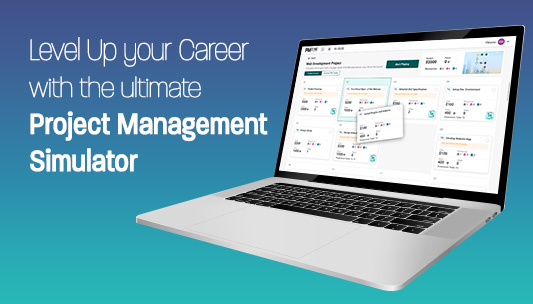The PMZONE digital simulation board game provides players with a deeper understanding of the fundamental concepts and main challenges of project management, through an enjoyable, hands-on experience.
During the game, players will need to add value to their project, plan their way forward, perform both known and unknown tasks, deal with constraints and risks, operate within budget and resource constraints, consider the bigger picture, be in control of the details, think creatively, manage uncertainty, and remain on target.
The challenges and dilemmas player will confront during the game, will allow them to develop new perspectives and improve their decision-making skills, helping them tackle their real-life projects.
At the end of the game, players will receive a detailed report with their game data so that they can reflect on.
In an instructor led training, instructors will receive a summarized report highlighting their students game performance, with the ability to drill down to students’ individual reports. Students game performance can then be related to the training.
Game Objectives
- Use the language of professional project management
- Understand the importance of and engage in effective project planning
- Understand how uncertainty and constraints can affect projects
- Analyze project success

